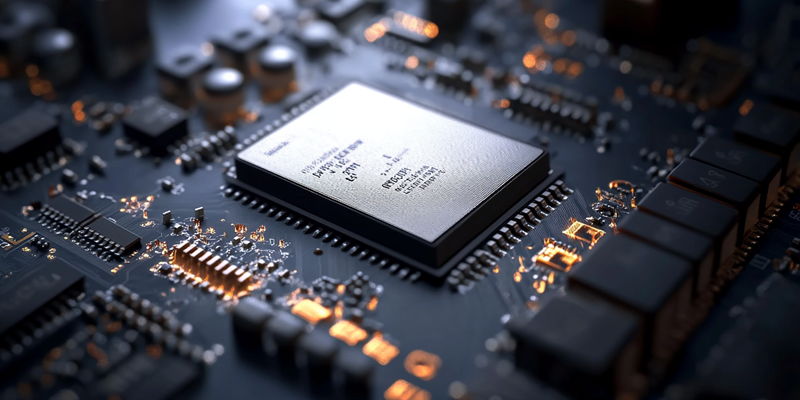Samsung’s latest development in memory technology is poised to make substantial waves in the tech world, spearheaded by their groundbreaking LPDDR5X memory chips. These chips represent an engineering marvel with their notably reduced thickness, now trimmed by an impressive 9% to just 0.65mm. This reduction in size is particularly significant for mobile devices, where every millimeter counts. The advent of thinner memory chips offers enhanced room for airflow within mobile devices, potentially improving cooling mechanisms and, consequently, overall device performance. This kind of development could be revolutionary for smartphones and other portable tech, where managing heat is a constant challenge.
The new LPDDR5X chips are available in both 12GB and 16GB capacities. Remarkably, they mark a 21% improvement in heat resistance over previous models, making them especially suited for AI applications. This enhanced cooling performance allows AI operations to run more efficiently on the device itself rather than relying heavily on cloud computing. By minimizing the dependency on external data processing, these chips could enable quicker and more autonomous AI functionalities. The optimization processes deployed by Samsung, including refinements to the printed circuit board (PCB) design, epoxy molding compound, and a specialized back-lapping process, are crucial in achieving these outcomes.
Impact on Future Mobile Devices and AI
Samsung is making waves in technology with its latest innovation: the LPDDR5X memory chips. These cutting-edge chips are an engineering marvel, featuring a significant reduction in thickness by 9%, now measuring just 0.65mm. This slim profile is crucial for mobile devices where space is at a premium. Thinner chips improve airflow in devices, potentially boosting cooling systems and overall performance. This is a game-changer for smartphones and portable gadgets, which constantly battle heat issues.
Available in 12GB and 16GB capacities, the LPDDR5X chips boast a 21% improvement in heat resistance over previous models, making them ideal for AI applications. This improved heat resistance means AI functions can run more efficiently on the device itself, reducing dependence on cloud computing. These chips enable faster, more autonomous AI functionalities by minimizing external data processing requirements. Samsung accomplished these advancements through meticulous optimization, including refined printed circuit board (PCB) designs, enhanced epoxy molding compound, and a specialized back-lapping process, all contributing to these impressive outcomes.

